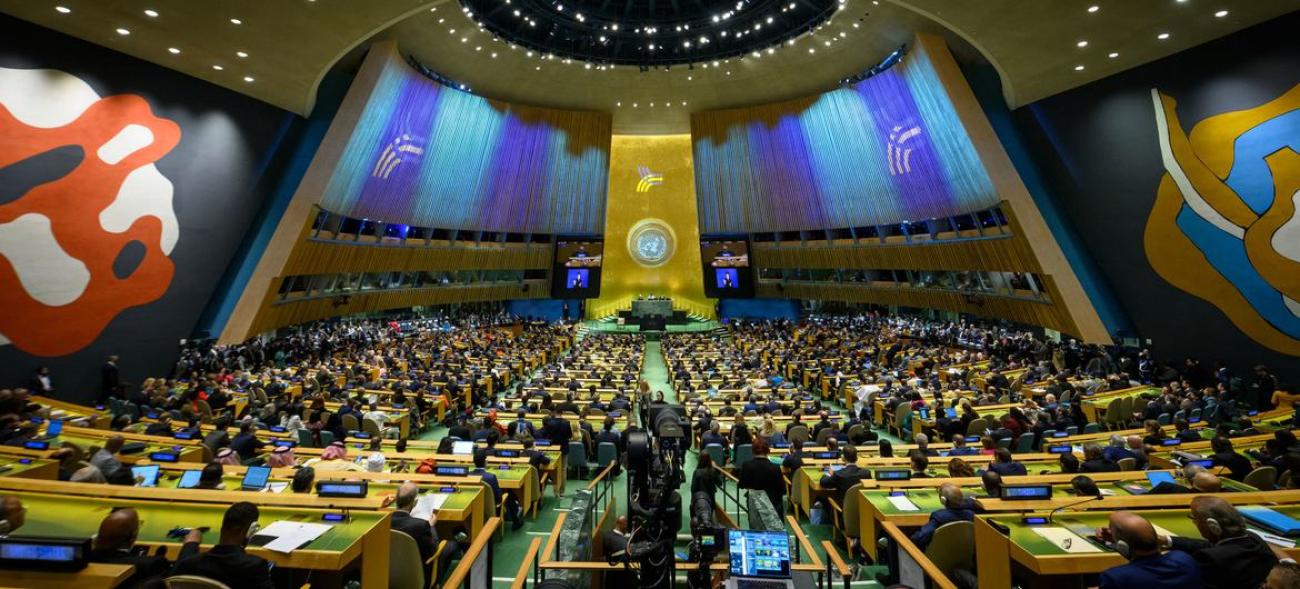With the adoption of the “Pact for the Future,” the United Nations General Assembly has taken a bold step to address the urgent challenges of the 21st century. Now, the true challenge lies in uniting a fractured world to swiftly implement its ambitious 56-point agenda.
Czech President Petr Pavel made it clear at the summit: “Our work begins at home.” The 193-member Assembly’s approval of the pact on Sunday aims to bring nations together to address pressing issues, from climate change and artificial intelligence to poverty and inequality.
Ambitious Goals, But the Road is Steep
The 42-page document was adopted at the start of the “Summit of the Future,” where world leaders are sharing their perspectives on global threats. While the summit sets the stage for the Assembly’s broader meeting, the path to actualizing these goals will be challenging.
Indian Prime Minister Narendra Modi emphasized the need for a global framework on technology that also “ensures that national sovereignty and integrity are upheld.” Meanwhile, China’s Foreign Minister Wang Yi voiced concerns over the divisive impact of geopolitical blocs and unilateral sanctions imposed by certain nations.
Russia’s Attempt to Alter the Pact

Leading up to the vote, uncertainty loomed over the pact’s adoption. So much so that UN Secretary-General António Guterres prepared three different speeches—one for approval, one for rejection, and another for an ambiguous outcome, as noted by UN spokesperson Stephane Dujarric.
Russia’s Deputy Foreign Minister Sergey Vershinin attempted to introduce an amendment that would have diluted the pact’s effectiveness.
Vershinin argued, “No one is happy with this pact.”
However, 143 countries, including all African nations, rejected Russia’s proposal. Only Iran, Belarus, North Korea, Nicaragua, Sudan, and Syria sided with Russia, while 15 countries abstained.
After the rejection, Assembly President Philémon Yang called for a final vote, approving the pact with resounding applause. This move underscored a significant shift in global alliances, especially as many African nations and Mexico stood firmly against Russia’s amendments—a setback for Moscow’s growing influence in regions like Mali and the Central African Republic.
Vershinin voiced his discontent, claiming the pact includes “unacceptable elements.” He declared Russia’s intent “to disassociate ourselves from the consensus.” Ukrainian President Volodymyr Zelenskyy responded by labeling Russia and its allies as “accomplices” to the challenges that hinder UN effectiveness.
Guterres Issues a Stern Challenge to World Leaders
Following the pact’s approval, Guterres urged leaders to focus on the difficult task of implementation. He called for the prioritization of dialogue and negotiations, urging countries to end conflicts worldwide, from the Middle East to Sudan and Ukraine. He also demanded urgent reform of the UN Security Council and a speedy transition from fossil fuels, underscoring the need to amplify youth voices in decision-making.
While the pact received widespread support, some leaders pointed to its limitations. President Hilda Heine of the Marshall Islands expressed frustration over political constraints, stating, “There is an incredible and persistent gap between ambitious solutions and international finance at hand.”
Ugandan Prime Minister Robinah Nabbanja, representing the Group of 77 developing countries, lamented the lack of commitment from developed nations to close the widening gap with the developing world.
Pact Highlights and Key Provisions
The pact addresses a range of global priorities. It pledges to reform the UN Security Council, increasing representation for Africa, Asia-Pacific, and Latin America. The agreement also marks the first multilateral endorsement of nuclear disarmament in more than ten years. It further aims to prevent an arms race in outer space and sets out the first universal agreement on AI governance through the Global Digital Compact.
On human rights, the pact tackles the rollback of women’s rights, pledging to remove legal and social barriers facing women and girls. Guterres highlighted the need for urgent action, saying, “in the face of a surge in misogyny and a rollback of women’s reproductive rights,” it is imperative to uphold these commitments.
As the summit wraps up, the world watches to see if these words will turn into actions, pushing toward a more united and sustainable future.



